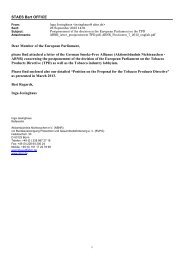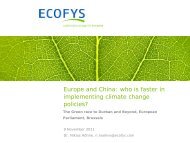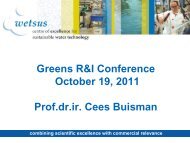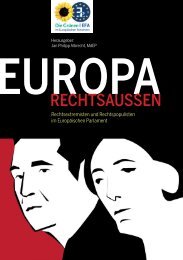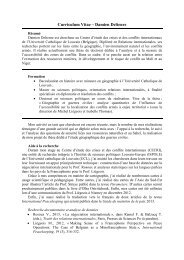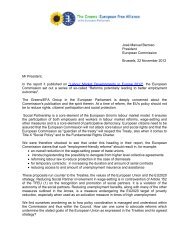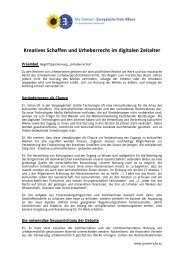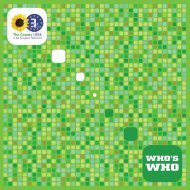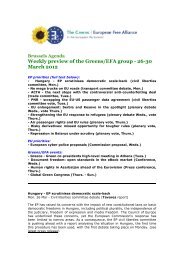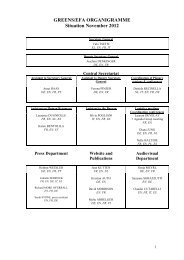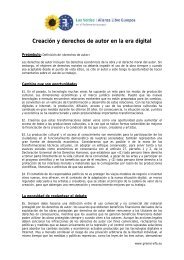Agro-Biotechnology: - The Greens | European Free Alliance
Agro-Biotechnology: - The Greens | European Free Alliance
Agro-Biotechnology: - The Greens | European Free Alliance
Create successful ePaper yourself
Turn your PDF publications into a flip-book with our unique Google optimized e-Paper software.
36 | Cloned farm animals - a ‚killing application‘? | Framing legislation<br />
6. Framing legislation<br />
So far there is no specific legislation within the EU that deals with the cloning<br />
of farm animals. However the existing EU regulation touches on several related<br />
aspects such as animal welfare, food safety, health protection, the zootechnical<br />
sector and patent law (Gunning, 2006, EGE, 2008)<br />
Some national legislation dealing specifically with animal cloning is in place in<br />
Denmark, the Netherlands and Norway. <strong>The</strong>se laws mainly concern the cloning<br />
procedure but do not legislate on products derived from cloned animals (semen,<br />
embryos or food products).<br />
<strong>The</strong> Council of the EU is currently planning to integrate food products from<br />
cloned animals into the Novel Food Regulation until a specific legislation will<br />
become applicable. <strong>The</strong> <strong>European</strong> Parliament voted for a general ban. <strong>The</strong> following<br />
paragraphs describe some existing legislation and new approaches that<br />
can meet actual needs for regulation.<br />
6.1 National legislation<br />
Denmark:<br />
<strong>The</strong> law only allows animal experiments involving cloning and genetic engineering<br />
for certain purposes such as basic research, health issues, environmental<br />
benefits. Furthermore, a license from the national authorities is required<br />
in each case. <strong>The</strong>se requirements also apply to the breeding of cloned or<br />
genetically modified test animals and where a previously cloned or genetically<br />
modified animal is used for research purposes. In practise this can be seen as<br />
a barrier against the cloning of farm animals for food production. On the other<br />
hand it does not cover the import and breeding of cloned or genetically modified<br />
animals for purposes other than animal experiments (e.g. food production<br />
etc.) (Gamborg et al., 2005, Gunning et al., 2006, EGE, 2008).<br />
Germany<br />
According to German law on animal welfare, experiments involving the genome<br />
of animals that might cause pain, suffering or damage require permission.<br />
Also its further breeding is covered by law. Moreover this regulation relates to<br />
cloning since it interferes with the genome of the animals and is not seen as an<br />
established process in breeding. <strong>The</strong>re are no laws that concern the import of<br />
cloned animals or semen or embryos derived from cloned animals. <strong>The</strong> same is<br />
true for food products 38 .<br />
<strong>The</strong> Netherlands<br />
No specific legislation exists. Similarly to Germany the cloning of animals is<br />
regulated via the Animal Health and Welfare Act. All biotechnological animal<br />
experiments, including cloning by nuclear transfer, have to be approved by the<br />
38 http://www.gesetze-im-internet.de/tierschg/



